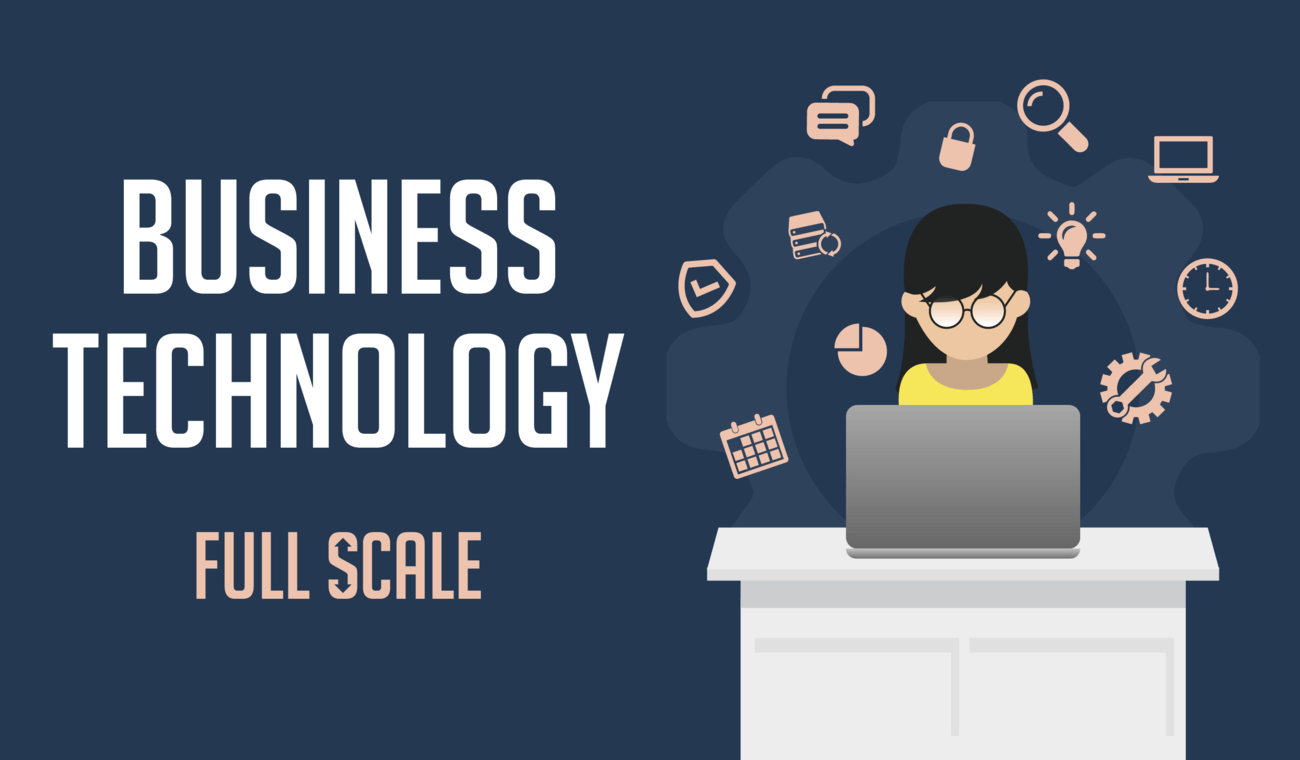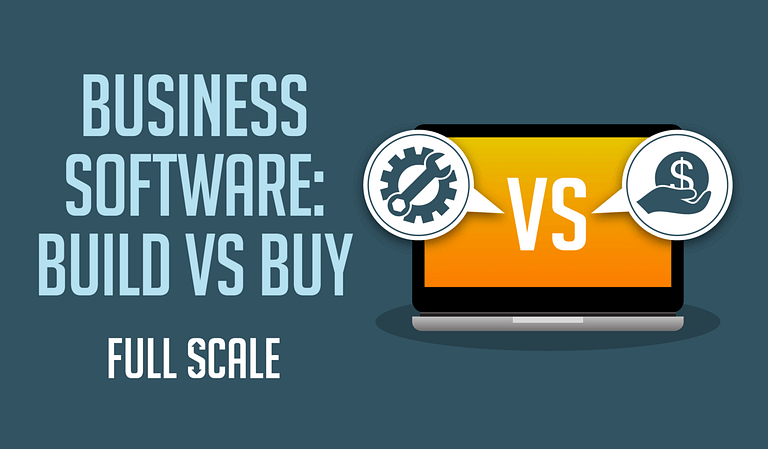Last Updated on 2025-02-20
Build vs buy software: which is better for a startup? A lot of startup founders find it incredibly difficult to determine which option suits their business. Here are some tips to help you make major decisions when it comes to enterprise technology. Read on.
In today’s digital age, businesses heavily rely on technology to grow and run their operations. In fact, 81% of digitally mature businesses credit their organization’s success to innovation. When used right, technology rapidly drives growth and profit. Nonetheless, it still takes a good amount of planning and strategizing to fully maximize it.
One of the biggest concerns in managing business technology is whether a company should purchase its tech or build it from scratch. Let’s dive deeper into the issue.
Managing your Business Resources
As a non-technical founder, you may find it hard to conclude the whole build vs buy software dilemma. From a business standpoint, you have to consider which can truly be beneficial to your company. This business decision will set the tone and nature of your entire business.
The first course of action is to set your business goals. Establishing your vision and long-term goals will help you strategize. And from there, you can start weighing your options as to how you will reach those goals.
Related Video: Why Using Technology at Your Business is Important
Build vs Buy Software: Technical Criteria to Consider
In deciding whether to build or buy software, you’ll have to evaluate all relevant factors. You need to assess factors like your project requirements, the upfront cost, long-term maintenance, etc. And more than just the internal factors, you should also consider how external users can work with it.
Here are some criteria to consider:
Cost
As a business, you always have to look for the most affordable solutions. When it comes to IT projects, however, the cost can quickly pile up. You have to factor in spending on the initial build, support, testing, upgrades, and the state of the market. And oftentimes, things don’t go as planned. One in six IT projects exceeds its estimated timeline and the overrun average cost goes up to 200%. So, you’d have to be creative in lowering development costs.
Buying software, on the other hand, would require a substantial upfront cost but a good investment in the long run. Since it’s ready to use, there are no unpredictable issues on the development side. It saves you from all the financial headaches associated with building in-house software.
Configurations
Another thing to weigh in is how much configuration will you need. Purchased software comes as configurable templates. This means you’re getting the ready-made version that you can conveniently customize based on preferences. Since the template has already been tested, there’s less room for errors, and your changes will not be complicated.
On the other hand, building an application will take on more cost and maintenance in the long term. Hard-coded applications will take a longer time to deploy since you are building them from scratch. On the upside, it allows you room for more specific customization.
Design
The software must be easy to use both internally and externally. Whether you’re buying or building software, it should be highly usable. After all, how can you make the most out of your tool if it’s too complicated to navigate? Its design should be user-friendly so that anyone on your team can learn it.
Likewise, the said software should also produce an equally user-friendly output. Customer experience is important, hence, your tech should be up to the challenge.

Security
The next area to think about is your business security. This is crucial especially when the nature of your operations deals with incredibly sensitive data. Carefully consider the limit of your information access. You may opt to build your own firewall of safety and reduce the risk of data leaks. Or, you can simply put restrictions on whatever tools you buy. Bear in mind that you are protected by a confidentiality agreement with service providers.
Maintenance
Lastly, you have to consider the future of your tech. Having an internal team maintaining your software would give you an advantage in scaling and rolling out upgrades. Since they’re the same team that developed it, they can also design its scalability. But, there’s also a catch. There’s a good chance your team may have their hands full to do fast upgrade work or bug fixes. And if you’re planning to use new technology, there will be a learning curve to overcome.
Buying software works in the sense that an external team can deal with complex architectures. As the service provider, they would automatically be responsible for the support, upgrade, and maintenance of the software.
Related Video: Tips for Using Technology at Your Business
So, Should you Build or Buy Software?
Admittedly, the more common approach is to buy ready-made tech. After all, there’s really no need to spend so much time and resources to build something that’s already in the market. Plus, it’s less of a hassle to set up. Software offered by credible brands has already gone through quality assurance and is fully functional. This means there’ll be less room for error in that area of your operations.
So, unless the software itself is your main product or it runs a core process, you’re better off just purchasing it. Now, this isn’t actually the end of the thought process. In fact, identifying the purpose of your tech is only the beginning. There are still other points to consider.
Here’s a checklist summary of the build vs buy software discussion:
Buy when:
- The software is not a core part of the business.
- You’re on a budget and you need a cost-efficient tool.
- You’re on a schedule and you’re aiming for fast deployment.
- You’re not equipped with the technical knowledge to take on a complex software development project.
Build when:
- You want to develop a unique capability for your website or application.
- You plan to sell your software as a product.
- You have a specific set of feature requirements.
- You can take your time with its development.
- You’ve got the right professionals to take on the project.
Learning More About Enterprise Technology
Whether you’ve decided to buy technology or build software, there are certain things to keep in mind about your company’s tech. As an entrepreneur, you need to grasp the importance of using tech in your business. It pays well to study more about the technical parts, such as knowing the common programming terms or being up-to-date with the latest tech trends. There are plenty of materials online you can use to study. This will help you make more informed decisions regarding the technologies you choose.
We talked more about buying or building tech for business in the Startup Hustle podcast.
Develop with Full Scale
Want to learn more about business technology? Or are you planning to build your own software? We’ve got the experts to help!
Full Scale is an outsourcing software development company that provides a wide range of startup services. We can help you build and manage your IT team. We’ll take care of all the nitty-gritty aspects of recruitment and management while you focus on your core operations.
Want to turn your business dreams into reality? Talk to us!

Matt Watson is a serial tech entrepreneur who has started four companies and had a nine-figure exit. He was the founder and CTO of VinSolutions, the #1 CRM software used in today’s automotive industry. He has over twenty years of experience working as a tech CTO and building cutting-edge SaaS solutions.
As the CEO of Full Scale, he has helped over 100 tech companies build their software services and development teams. Full Scale specializes in helping tech companies grow by augmenting their in-house teams with software development talent from the Philippines.
Matt hosts Startup Hustle, a top podcast about entrepreneurship with over 6 million downloads. He has a wealth of knowledge about startups and business from his personal experience and from interviewing hundreds of other entrepreneurs.






